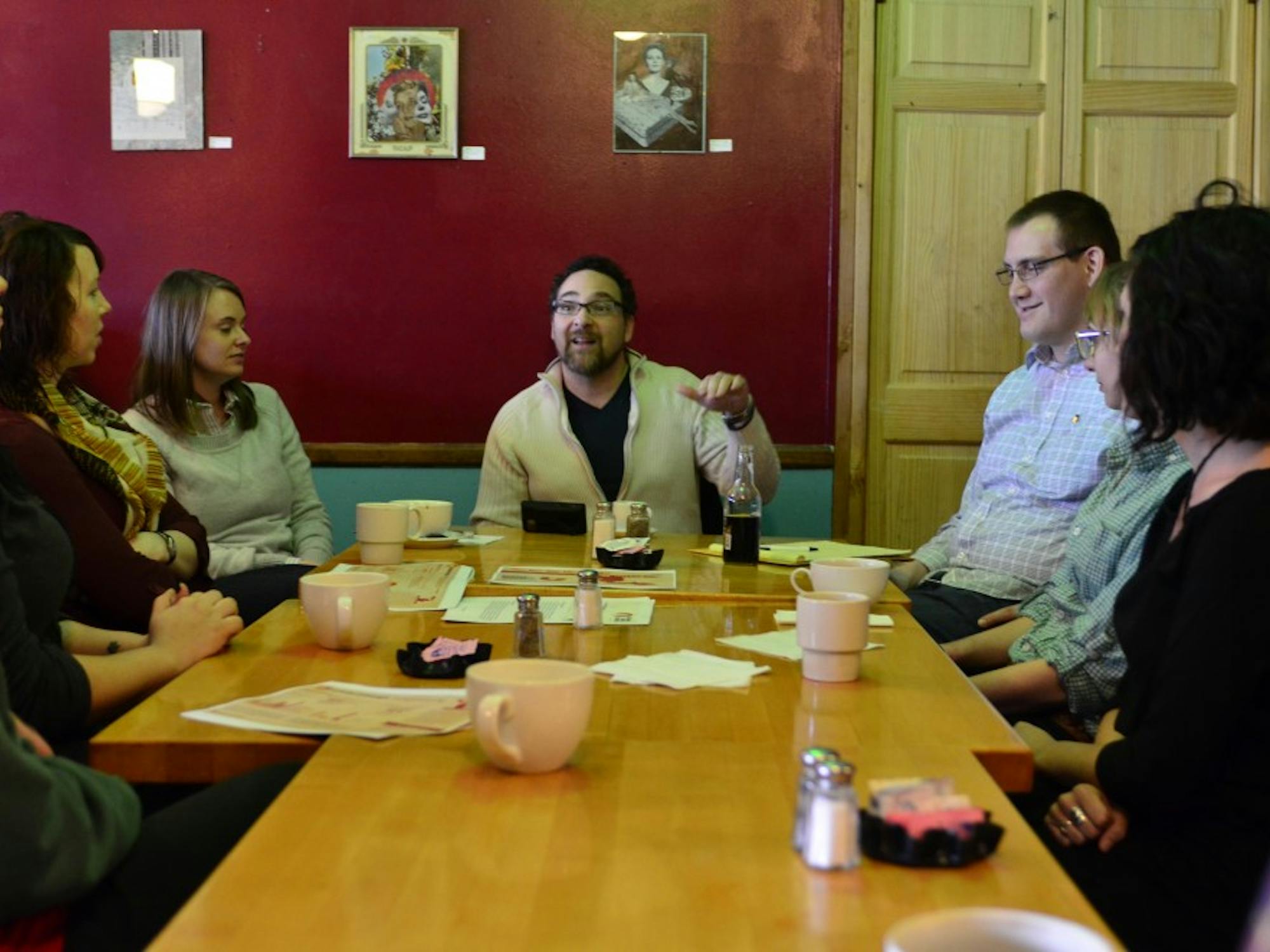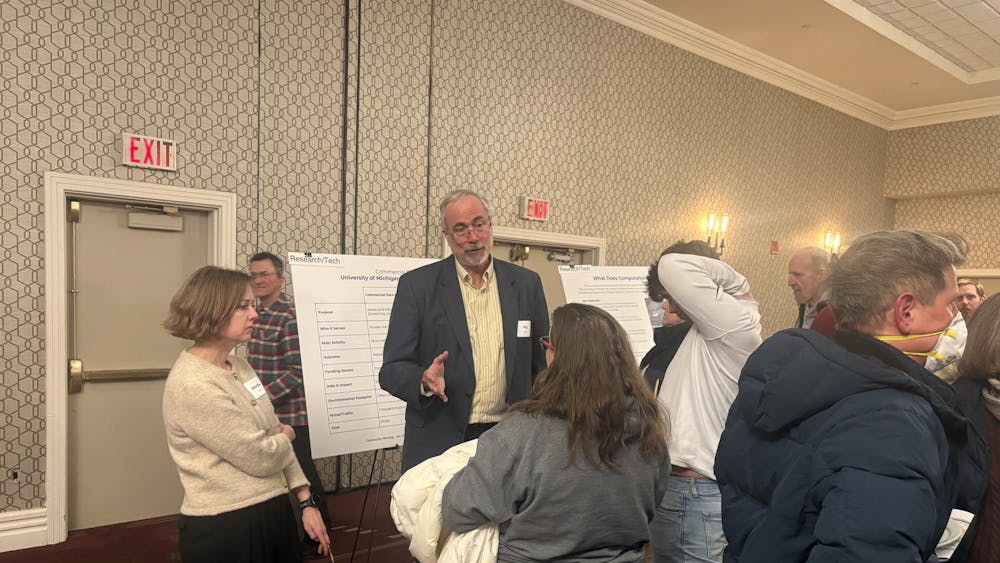The Millennial Mayors Congress met Sunday at Cafe Ollie, located at 42 E. Cross St., to discuss local environmental, economic and social issues with members of the Ypsilanti community.
Conan Smith is the Washtenaw County commissioner for the Michigan Suburbs Alliance, a nonprofit organization, and has worked for the Michigan Environmental Council.
He said the most important issue that has been surfacing locally is the recent discussion to possibly cut Ypsilanti out of the Regional Transit Authority bus route.
“The RTA has threatened to cut service to Ypsi, and Ypsilanti is at the mercy of the folks in Ann Arbor,” Smith said. “If you don’t want to be connected to the fellow communities, what does that say about us as a people?”
The MMC’s survey from 2009 revealed that 72 percent of millennials in the metro Detroit area were dissatisfied with the available public transit services.
The same survey found transportation choices and flexibility to be the eighth most important issue when choosing a place to live for residents between the ages of 18-35.
The Millennial Mayors Congress was established in 2009, and participating communities are represented by a millennial, 18-to-35-year-old residents and a city official.
It works to solve problems facing communities and is currently being implemented in 22 communities from Washtenaw, Wayne, Macomb and Oakland counties.
Maia Hardy is an alternative representative for the millennials in Ypsilanti and a recent Eastern Michigan University graduate. She said Michigan’s abundance of freshwater was an issue that should receive more attention.
“It’s really a huge issue,” she said. “We’re in such a unique position by living in Michigan. The next world war could be over water and we are surrounded by it.”
Smith agreed Michigan’s freshwater is an incredibly important resource.
“The Great Lakes contain 80 percent of the world’s freshwater. There is local, national and global interest to maintain the high quality of the water in those lakes,” he said.
Smith also said Detroit needs about $20 billion invested in its public water system.
“The water infrastructure is such an amazingly big and complex issue across metro Detroit. It’s going to take leadership, energy and action,” he said. “That’s something millennials bring to the table.”
He also said overhauling outdated pipes and plumbing would be a good investment.
“It would produce blue-collar jobs that we have a high capacity for across the state,” he said. ”It does cost a considerable amount of money, but modern water infrastructure lasts for 100 years. If it takes 50 years to pay it off, that’s OK.”
Environmental issues, such as dredging, were also discussed at the meeting.
Emily Thompson, the talent programs coordinator for Michigan Suburbs Alliance, said the St. Claire flats were a good example of an area that is being exposed to a lot dredging.
“Dredging works for now, but in 100 years will it still be able to stave off change along the coasts?” she asked.
Although the MMC primarily focuses on catering to local communities’ problems, other topics affecting Michiganders statewide, such as employment for recent college graduates and other work-related issues, were also addressed.
“Some elected officials feel that younger people aren’t interested,” Smith said.
He urged those in attendance to take action with issues they felt strongly about.
“Write the city council or your local politician. It only takes 20-30 letters from folks on the state level to make a difference and bring about change,” Smith said.










